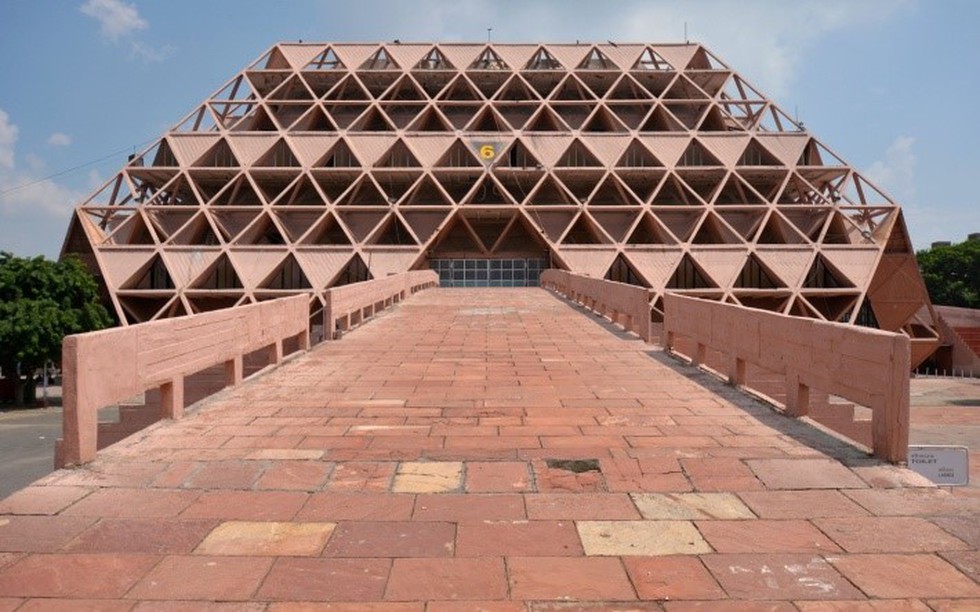About Pragati Maidan:
- It is one of the biggest exhibition centers in India.
- Location: New Delhi.
- History:
- It was inaugurated on 3 November 1972 by then Prime Minister Indira Gandhi.
- The first show which took place here was the ASIA 72 TRADE SHOW – to celebrate 25 years of India’s Independence.
- It is owned, operated, controlled and managed by India Trade Promotion Organization (ITPO), the trade promotion agency of the Ministry of Commerce and Industry, Govt. of India.
- It hosts over 70 national and international exhibitions annually, with the largest being the India International Trade Fair.
- Features:
- It is a huge complex of buildings, covering over 150 acres (0.61 km2) sprinkled with many lawns, overlooking the historic Purana Qila.
- The complex houses many pavilions like the Nehru Pavilion, the Defence Pavilion, the Indira Pavilion, and the Son of India Pavilion.
- It also has an auditorium where rock shows and plays are held quite frequently.
- The complex houses 18 exhibition halls, several buildings, eateries, performance spaces and compounds, including headquarters of the India Trade Promotion Organisation (ITPO).
Key facts about Purana Qila:
- Location:
- It is located on the South Eastern part of the present city of New Delhi.
- It is one of the oldest forts in Delhi and built on the banks of river Yamuna.
- The present citadel at Purana Qila started its construction in the reign of Humayun and was completed by Sher Shah Suri (‘The Lion King’).
- The Qila was inspired by Jama Masjid, which was established 15 years before the reconstruction of Qila.
- Architecture:
- It is rectangular in shape and is spread over an area of 1.5 kilometers.
- Another amazing feature of the Purana Qila are the three gates that are a display of a happy blend of Hindu and Muslim styles of architecture. – Bara Darwaza or the Big Gate facing west, the Humayun Gate facing south, and the Talaqqi Gate, which is often referred to as the forbidden gate.
- All of the gates are double-storeyed and comprise of huge semi-circular bastions flanking either of their sides.
